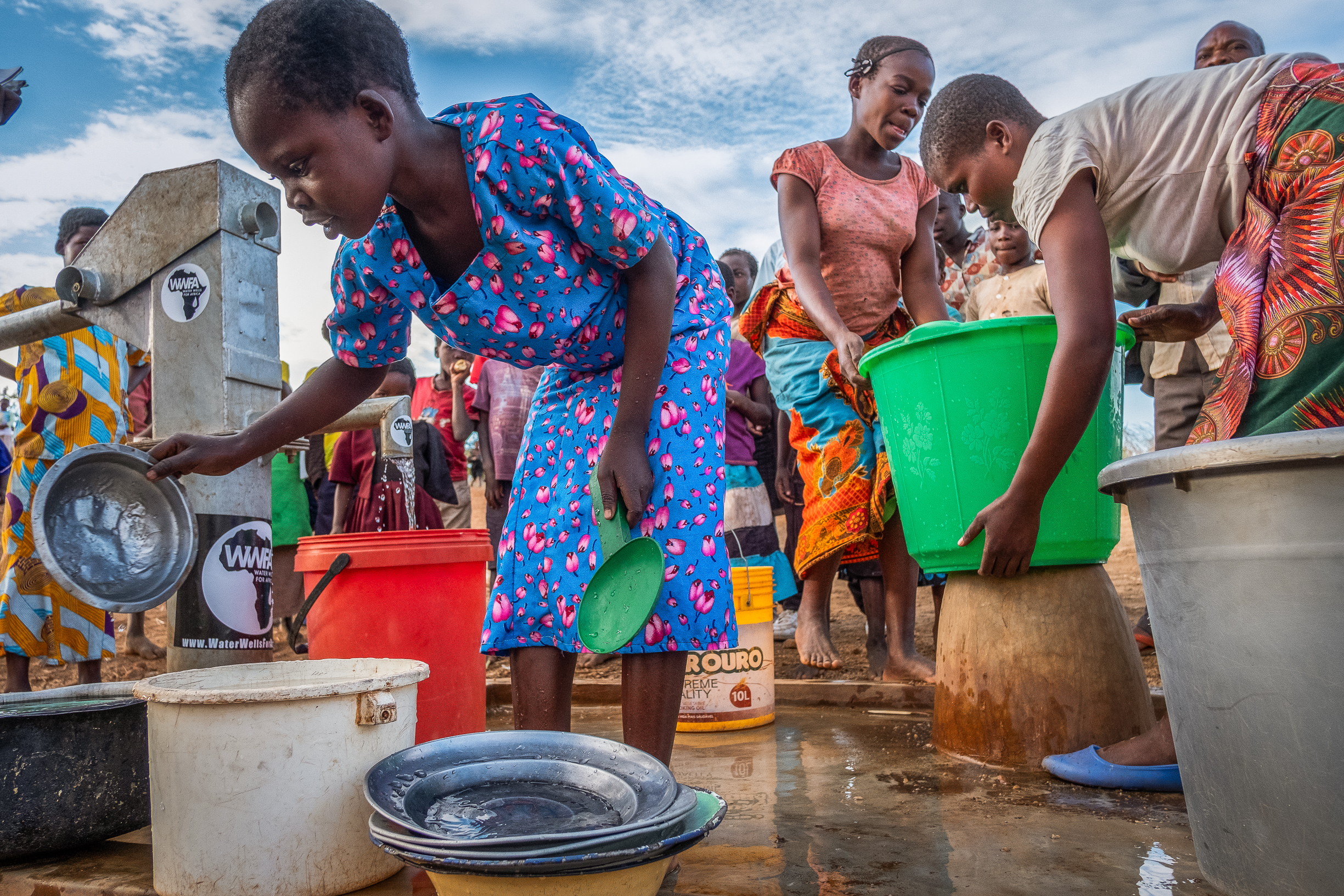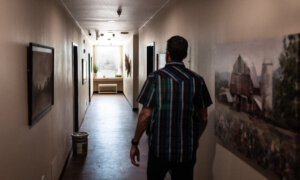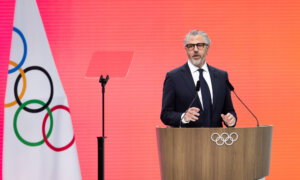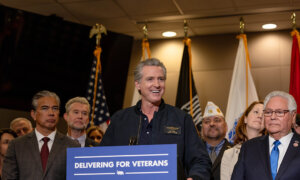REDONDO BEACH, Calif.—When Kurt Dahlin first arrived in the landlocked Southern African nation of Malawi in 1994, it was listed as one of the most challenged countries on the Human Development Index, an analysis tool used by the United Nations to identify countries with more humanitarian needs.
“Our operations at Water Wells for Africa have come a long ways since the early days,” Mr. Dahlin, 72, president and founder of the nonprofit, told The Epoch Times. “You cannot improve global suffering without accessible water—or improve anything without water for that matter.”
Since constructing its first well in 1996, the organization has continued to focus its mission on providing accessible and clean water resources for some of the world’s most hard-to-reach communities.
“I still cannot believe some of the remote places our wells have ended up or how the gigantic well-drilling trucks even made their way there because of the terrain,” Mr. Dahlin said. “When our operation first launched in 1994, the process was effective but much slower.”
According to Mr. Dahlin, updated GPS technology and drilling equipment now give the organization the ability to serve Malawians more quickly.
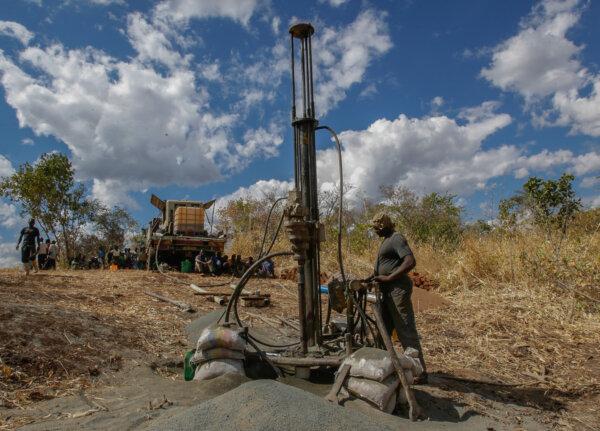
Contracted drillers work with Water Wells for Africa in building water wells in rural Malawi, Africa, on June 15, 2017. (John Fredricks/The Epoch Times)
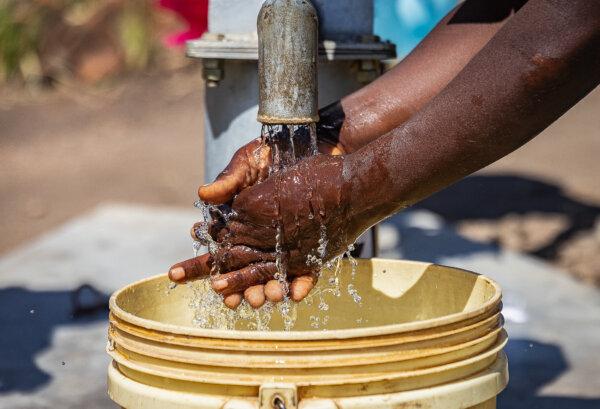
A water well built by Water Wells for Africa donated by actor Charlie Sheen continues operation in Southern Malawi on June 30, 2021. (John Fredricks/The Epoch Times)
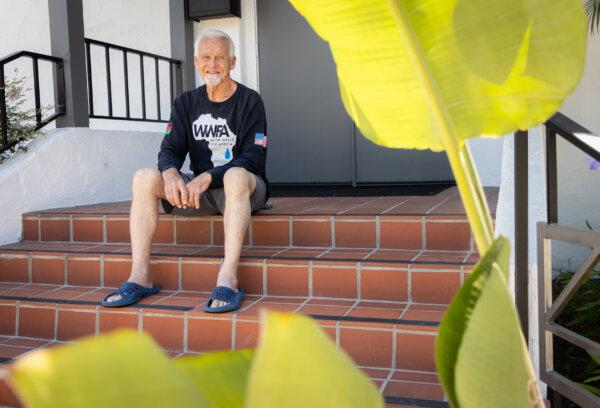
Water Wells for Africa President and Founder Kurt Dahlin in Redondo Beach, Calif., on June 24, 2024. (John Fredricks/The Epoch Times)
Since 1996, the organization has constructed more than 500 wells.
With each well serving at least hundreds of people in local villages and schools, it’s the first time in the lives of many Malawians that they’ve had access to a safe water source.
In November, some of these villages and schools told The Epoch Times that sickness and disease had almost become nonexistent and that the wells had even created an increase in school attendance rates.
“Because of the water well, our students are no longer missing lessons,” Nanyanje School Headmaster Shadrach Moses told The Epoch Times. “Students now have overall better academic performance.”
Mr. Dahlin notes that water is “the missing piece” to Malawi’s education hurdles.
Researchers have found that Malawi has one of the highest school dropout rates in Southern Africa. Water Wells for Africa (WWFA) strives to combat these statistics, and the organization has had consistently positive results from schools such as Nanyanje, which also report increases in female students.
In Malawian culture, women and girls are often given the task of obtaining water, which can result in long morning treks that last hours and reduce the possibility of going to school.
“When you put in water, kids can now go to school,” Mr. Dahlin said. “It’s as simple as that.”

A woman carries water from a well constructed by Water Wells for Africa in Malawi, Africa, on June 12, 2023. (John Fredricks/The Epoch Times)
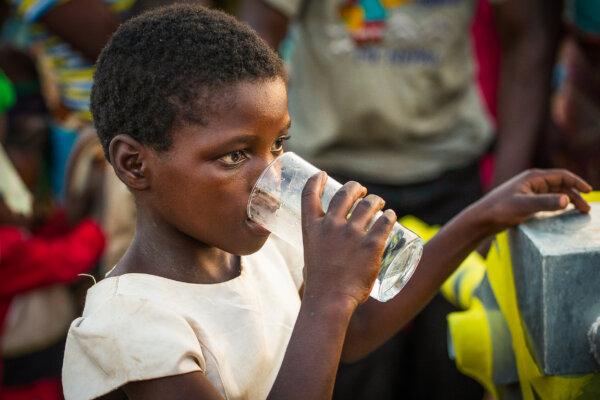
A girl drinks from a well built by Water Wells for Africa in Southern Malawi on June 20, 2017. (John Fredricks/The Epoch Times)
Hollywood Paves the Way
As WWFA prepared to celebrate its 30-year anniversary this year, Mr. Dahlin thought back on the organization’s early days before social media helped digitize fundraising opportunities.
While attending church together in Hermosa Beach in the early 1990s, world-renowned Hollywood stuntman Eddie Braun became interested in Mr. Dahlin’s vision of making water accessible to people in need.
Not only was Mr. Braun the first donor to the organization, but he also connected Mr. Dahlin with his friends, including actors Cary Elwes from “The Princess Bride,” John Stamos from “Full House,” and Charlie Sheen of “Platoon” fame, whom Mr. Braun was performing stunt work for at the time.
“I get kind of choked up thinking about it, but maybe in some small way I’ve been able to [impact] the universe in assisting Kurt Dahlin in all of this,” Mr. Braun told The Epoch Times over the phone while on a movie set in Texas.
“God has been so overwhelmingly generous to me in giving me the ability and the access to people that could affect change. All I had to do was go out on a limb and ask them.”
After Mr. Braun set up a meeting at Mr. Sheen’s airplane hangar at Santa Monica Airport in 1994, the actor was in full support of Mr. Dahlin’s idea to bring safe and accessible water to Malawi.
“I think the fact I was going to Africa with Kurt on that first trip might have helped Charlie [Sheen], Cary [Elwes], and John [Stamos] encourage their decision, because they trusted me,” Mr. Braun said. “And I have always been so inspired by Kurt.

Charlie Sheen attends a charity softball game to benefit "California Strong" at Pepperdine University in Malibu, Calif., on Jan. 13, 2019. (Rich Polk/Getty Images for California Strong)

Actor John Stamos accepts the Timeless Icon Award onstage during the 2016 TV Land Icon Awards at The Barker Hanger in Santa Monica, Calif., on April 10, 2016. (Joe Scarnici/Getty Images for TV Land)
“Seeing his vision play out successfully the last 30 years has been so impactful to the world on so many levels.”
For Mr. Braun’s first excursion to Malawi with Mr. Dahlin in 1994, he credits one item in his “survival kit” as helping him get through the ruggedness of the first official WWFA trip.
“Tabasco sauce,” he said with a chuckle. “It was a ‘bare bones’ excursion sleeping in mud huts, no electricity, and eating whatever food that came our way, and I would just pour that stuff on everything I ate.”
Upon leaving Malawi, Mr. Braun was struck by his habit of “taking things for granted” back home in Los Angeles.
Still working today in the film industry, he continues to financially support WWFA and even donated a pump-action water well that serves remote villages in the country’s southern regions.
“My hope is that if I hadn’t done anything else to impact the world, then I would hope that maybe this could measure up,” he said.
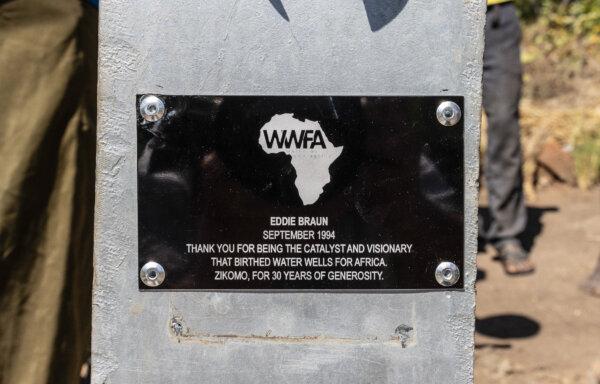
A water well funded by stuntman Eddie Braun in Southern Malawi on June 7, 2023. (John Fredricks/The Epoch Times)

Villagers use a water well installed by Water Wells for Africa in the Mongochi District, Malawi, on Nov. 6, 2023. (John Fredricks/The Epoch Times)
Continued Efforts
Years after Mr. Braun’s visit to Malawi, then-9-year-old Brittney Harris first found out about Africa’s need for water resources while watching a video displaying the water crisis at her local church.
Seeing children her age dying of thirst, Brittney quickly joined her mother in using their baking skills to help raise money for more wells.
“It was my dream to start helping these children, so my mother and I started baking pies and cakes for Water Wells for Africa,” Ms. Harris, now 22, told The Epoch Times. “We are so grateful to our supporters because we raised around $250,000, and 100 percent of that went to address the need of providing water!”
The recent Texas A&M graduate has now fundraised for the construction of more than 35 water wells in Malawi through the organization.
“This was a community effort and I want to share a special thanks to my parents for helping me fulfill that dream of mine all those years ago,” she said.
But for Ms. Harris, the dream continues.
After accepting a staff proposal to work with WWFA on the marketing and communications team, she is adamant about continuing to serve those who need water and helping “strengthen the next generation of Malawians.”
“Getting to do this as a full-time job is so amazing,” Ms. Harris said. “The benefits to having water are ever-growing and we want to share those benefits with everyone.”
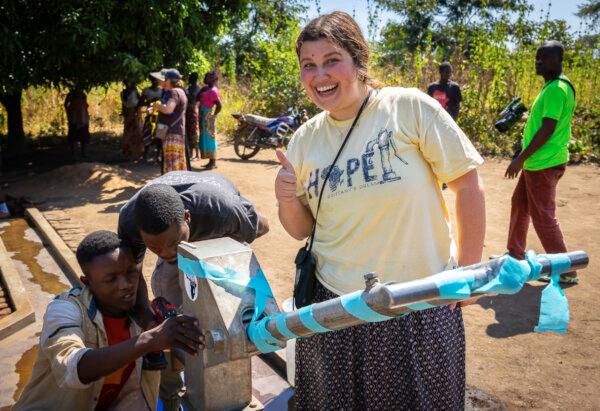
Brittney Harris stands by a water well built by Water Wells for Africa in Southern Malawi on June 9, 2023. (John Fredricks/The Epoch Times)
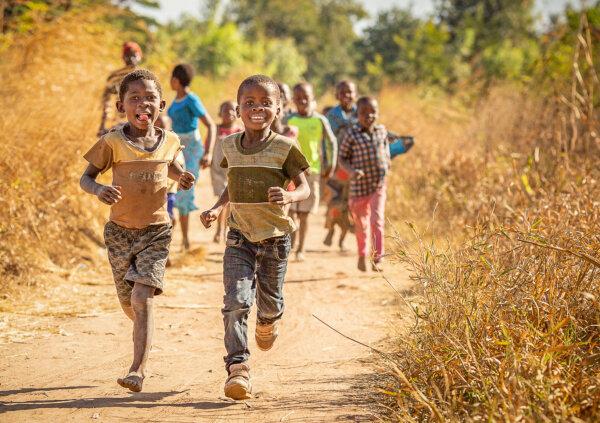
Children run to a water well built by Water Wells for Africa in Southern Malawi on June 14, 2019. (John Fredricks/The Epoch Times)

A child drinks from a well built by Water Wells for Africa on July 16, 2018. (John Fredricks/The Epoch Times)
A Hydrated Future
In Malawi, the poverty rate remains one of the highest in the world, with more than 70 percent of its population below the poverty line, according to the World Bank.
Despite the economic challenges the nation continues to face, WWFA founder Mr. Dahlin is confident he will reach his original goal of building 1,000 water wells in the remote regions of Malawi.
“These wells create infrastructure and business, get kids in school, lower human trafficking rates, and drastically improve health by almost completely eliminating sickness caused by waterborne diseases,” Mr. Dahlin told The Epoch Times.
“We have been seeing these improvements in Malawi firsthand, year after year, and we are excited with what is happening on the ground right now.”
On average, the organization can establish water wells in villages for $9,000 with a sustainability rate of 25 years, though Mr. Dahlin has recently inspected earlier well projects that are still in operation.
“The first well we ever put in 30 years ago was in Nchiwa, and it’s still going strong, and the village is thriving,” he said.
“Who would have ever thought that a cup of water had that ability in it. It is a cup of dreams.”
